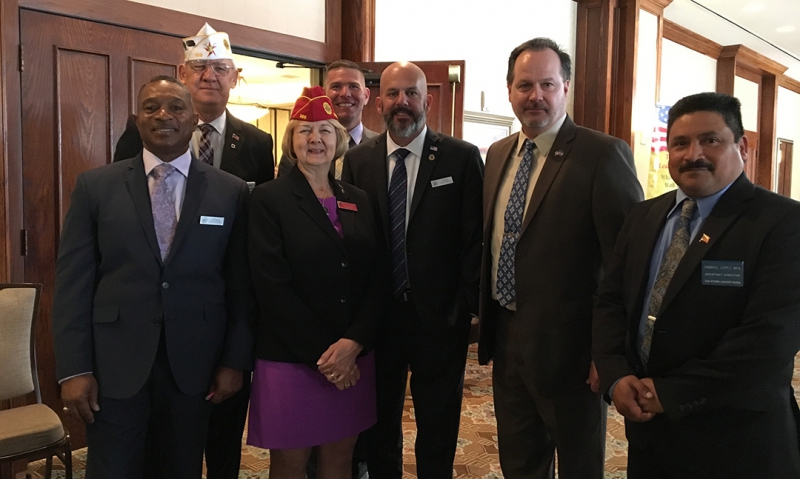
Legion helps veterans in Texas transition to civilian life
A program in Texas is working with The American Legion and other veterans service organizations to help servicemembers with their transition back to civilian life.
The Texas Veterans Leadership Program (TVLP) is a resource and referral network through the Texas Workforce Commission aimed at helping veterans of Iraq and Afghanistan. A group of veterans serving as Veteran Resource and Referral Specialists (VRRS) in the program meet with other returning veterans to address their needs, including employment, training, medical and education.
Bob Gear, director of the program, noted that most of the TVLP staff are members of The American Legion.
“The Texas American Legion has had tremendous leadership who has embraced partnerships with state agencies and other nonprofits,” Gear said. “It takes all of us working together in order to provide the best assistance to veterans and their families.
“We have been extremely fortunate to have had passionate advocates for veterans as Past (Department of Texas) Commander John McKinny, Lynn Sparks, Walter Ivie and the present Department Commander John Hince. It has been the department leadership, the (Veterans Rehabilitation & Education) Committee and the department staff, especially Bill West, who have forged this partnership.”
Gear said TVLP shares employment openings, job fairs and benefits information for posting on the Department of Texas website.
“Our staff works directly with posts to nominate employers, nonprofits, local workforce and offices for the Legion’s national Veterans Employment & Education Commission awards. We are starting a pilot project, partnering with a Legion post close to Fort Hood, to train the Legion members on becoming peer-to-peer Veteran Program Support Specialists,” he said.
Gear said that, in the program’s eight-plus years of existence, the greatest lesson staff have learned is the importance of successfully transitioning servicemembers as quickly as possible.
“Our program provides peer-to-peer mentoring, listening to the veteran’s short- and long-term goals. They assist the returning veteran in developing a plan to achieve their goals.
“Our staff also connects the veterans to the local community resources that can best help the veteran achieve their goal, whether it be gaining employment, attending college or technical training, or starting their own business. This includes introducing the veterans to the (veterans service organizations).”
And that becomes a benefit both for the veterans and the Legion.
“American Legion posts have provided financial assistance, donated items such as dishes, food, baby cribs or car seats to veterans and their families. The American Legion has been a long-time sponsor of job fairs which directly impacts the veteran’s ability to provide for themselves and their families,” Gear said.
“This benefits The American Legion by being visible in the community and in the veteran’s eyes. The more the veterans see The American Legion being active through the different programs, the more the veteran wants to be a part of the organization.”
Gear said he would encourage every department to contact their state’s workforce system to “start a conversation on how The American Legion can assist the workforce in accomplishing its mission on employing veterans.”
“What better way is there to introduce The American Legion to recently separated veterans or veterans who are looking for work then partnering with the state’s workforce system?” Gear said.
